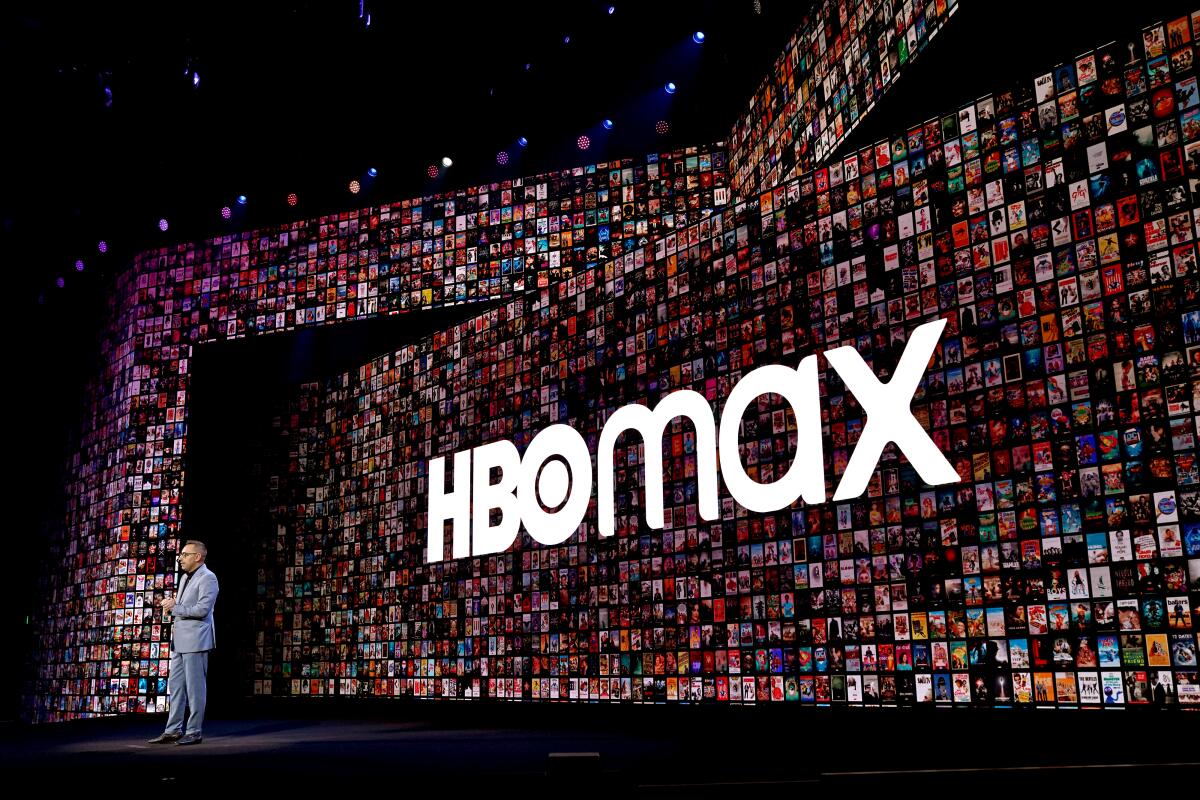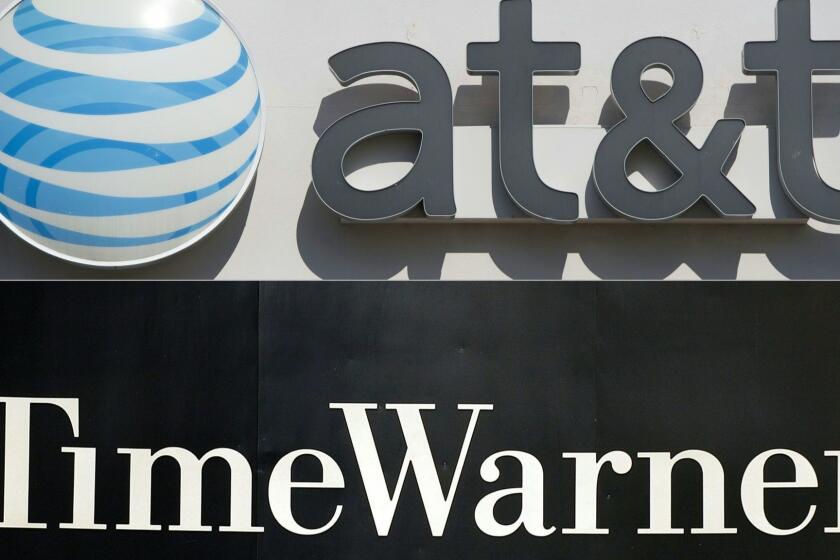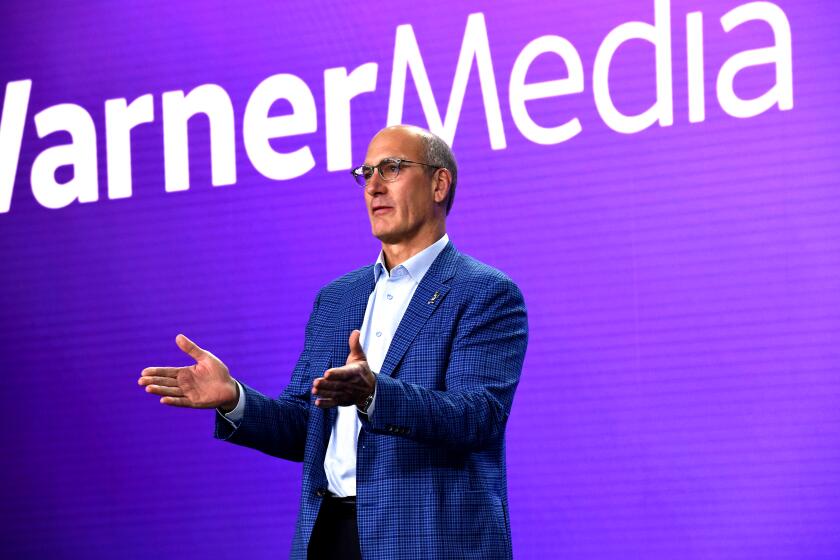Dish’s epic battle with HBO ends

- Share via
Satellite TV giant Dish Network and HBO’s parent company, WarnerMedia, have taken off their boxing gloves.
It’s been nearly three years since carriage talks between the two companies broke down, which led to Dish pulling HBO and Cinemax from its lineup of available TV channels. The popular networks also vanished from Dish’s SlingTV service.
The bitter dispute with Dish marked the first — and only — blackout in HBO’s 43-year history, and culminated with the long-running outage of the premium channels for more than 2.5 million Dish customers.
But on Thursday, Englewood, Colo.-based Dish and New York-based WarnerMedia announced that they had settled their differences. Dish said it would immediately begin distributing HBO, Cinemax and WarnerMedia’s streaming service, HBO Max.
More than 2 million Dish Network customers nationwide have lost access to HBO and Cinemax in the latest escalation of hardball negotiations over carriage fees.
“Our number one priority at Dish is and always has been to provide our customers the best entertainment experience,” Brian Neylon, Dish TV group president, said in a statement. “Our customers now have greater choice in the content they can access.”
The companies declined to provide specifics on how they finally reached a breakthrough in one of the longest-running carriage disputes in TV history.
The distribution fee talks broke down on Halloween 2018, just a few months after AT&T acquired WarnerMedia for $85 billion. AT&T also owns Dish’s archrival, El Segundo-based DirecTV, and Dish had been a fierce opponent of AT&T’s purchase of WarnerMedia, which also includes CNN, TBS, TNT, Turner Classic Movies and Warner Bros. film and TV studio.
In addition to a squabble over fees, Dish in 2018 had bristled over AT&T’s practice of offering HBO service for free to customers of its various platforms, including cellphone service. At the same time, AT&T was demanding that longtime distribution partners also pay fee increases to carry HBO.
But now, AT&T plans to spin off WarnerMedia — just three years after the Dallas phone giant bought the media company, racking up a mountain of debt. In May, Discovery reached a deal to merge with WarnerMedia.
The companies are expected to announce their proposed joint venture as early as Monday, creating a new company that would reshape Hollywood.
And the animosity between Dish and WarnerMedia has receded.
On Thursday, Dish said customers could subscribe to HBO Max for a promotional rate of $12 per month for up to a year. Typically, HBO Max costs $14.99 a month. Dish said its subscribers to the HBO service will receive six live channels, including HBO and HBO Family. Dish customers also can pay $10 a month for sister channel Cinemax.
Dish said it would offer its customers a 10-day free preview for HBO and Cinemax.
For WarnerMedia, the new pact comes at an opportune time.
The company is on the hunt for new subscribers for its streaming service, HBO Max, which launched 14 months ago — in the middle of the Dish impasse.
Facing intense competition from Netflix, Disney+, Paramount+ and NBCUniversal’s Peacock, WarnerMedia said last week that HBO Max had notched 47 million signups. The new distribution deal will enable Dish customers to join the fold.
“When we launched HBO Max, we set out to make it available to customers everywhere ... and today’s launch with Dish is a key addition to our distribution strategy for the platform,” Scott Miller, WarnerMedia executive vice president of business and legal affairs, said in the statement. “We’re excited that Dish customers can now access all that HBO Max — as well as our premium linear networks — have to offer.”
More to Read
Inside the business of entertainment
The Wide Shot brings you news, analysis and insights on everything from streaming wars to production — and what it all means for the future.
You may occasionally receive promotional content from the Los Angeles Times.













